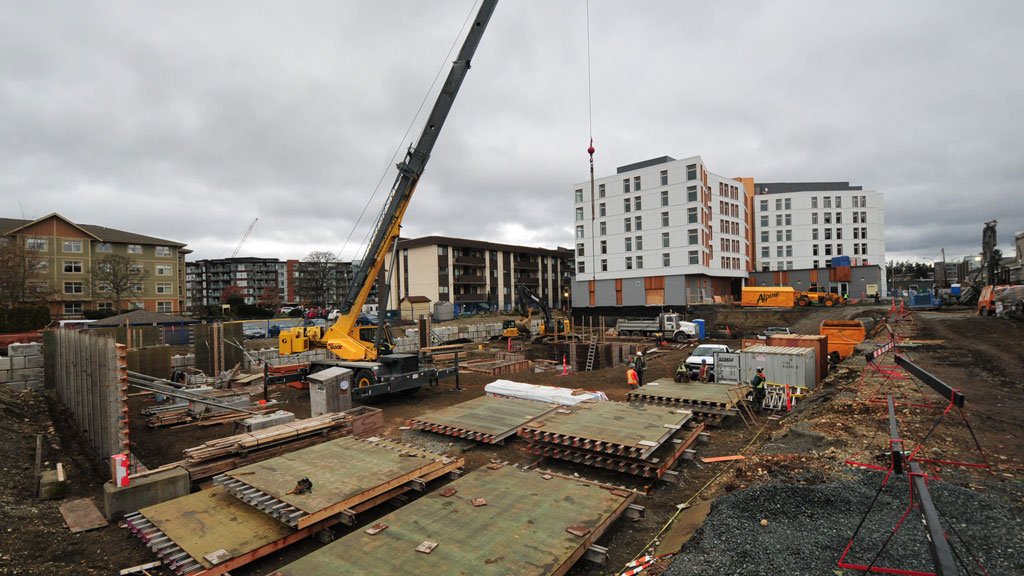All levels of government have a role to play in increasing housing supply, an interim report in B.C. shows.
An expert panel assembled by the province released their report What We Heard, which compiled comments about the housing crisis from key stakeholders and survey respondents.
In all, the panel met with more than 100 stakeholders and received 20 email submissions.
One of the biggest issues participants had was with government, which dominated 71 per cent of discussions.
“The biggest challenges our urban centres face are issues of governance,” reads the report. “This topic dominated both the discussions and the potential solutions brought to us.”
The report noted that projects will often find themselves stuck for years in the approvals process and that these long delays increase risk, uncertainty and cost. The report also noted that the adoption of new technology, materials and building techniques, as well as skills shortages, also adds to the slowdown of new housing supply.
“The province needs to set a standard for the development permit application process and force municipalities to cut the red tape and move forward with projects quicker, all levels of government keep saying we’re in a housing crisis and yet they all act and respond as if we have years to sort it out,” said one stakeholder participant.
The panel heard from many participants that the federal government should put conditions on transit infrastructure funding ensuring that all federally supported projects come with an associated increase in housing both in terms of the number of units and density. Other suggestions the panel heard focused on finding ways to streamline federal funding for housing projects. Specifically, the panel heard about the long and complicated application processes for CMHC programs.
Respondents suggested increasing federal fiscal transfers to municipalities to cut down on development costs and collaborating with cities to build infrastructure that supports housing and creates developable sites. Respondents also urged Ottawa to promote accelerated growth of a skilled workforce through immigration policy to help create a pool of skilled talent in the province to build the necessary housing.
At the provincial level, the panel was told that officials there also need to grant new revenue tools so municipalities can reduce development costs. They also asked the province to streamline the approvals process by adapting the recommendations of the Development Approvals Process Review and by reducing the requirements for public hearings during individual project rezonings.
Many commented on what municipal government could do to increase supply. The report noted that respondents called for more transparent and predictable processes that standardize development costs charges.
Stakeholders also asked for municipalities to reduce the amount of public hearings through rezoning and work to make hearings more than “a sounding board for the NIMBY perspective.”
The next steps for the report process includes more conversations and reviewing online surveys that hone in on the themes revealed in the interim report. The panel also stated it intends to continue its own research into the topic which will result in recommendations to the province and the Government of Canada by the end of the year.
“Build, build and build some more,” said one respondent in the report. “Reduce the costs to build wherever possible, including streamlining the process, shortening timelines and look for opportunities to house labour that we so desperately need to complete these projects.”
Follow the author on Twitter @RussellReports.











Recent Comments
comments for this post are closed